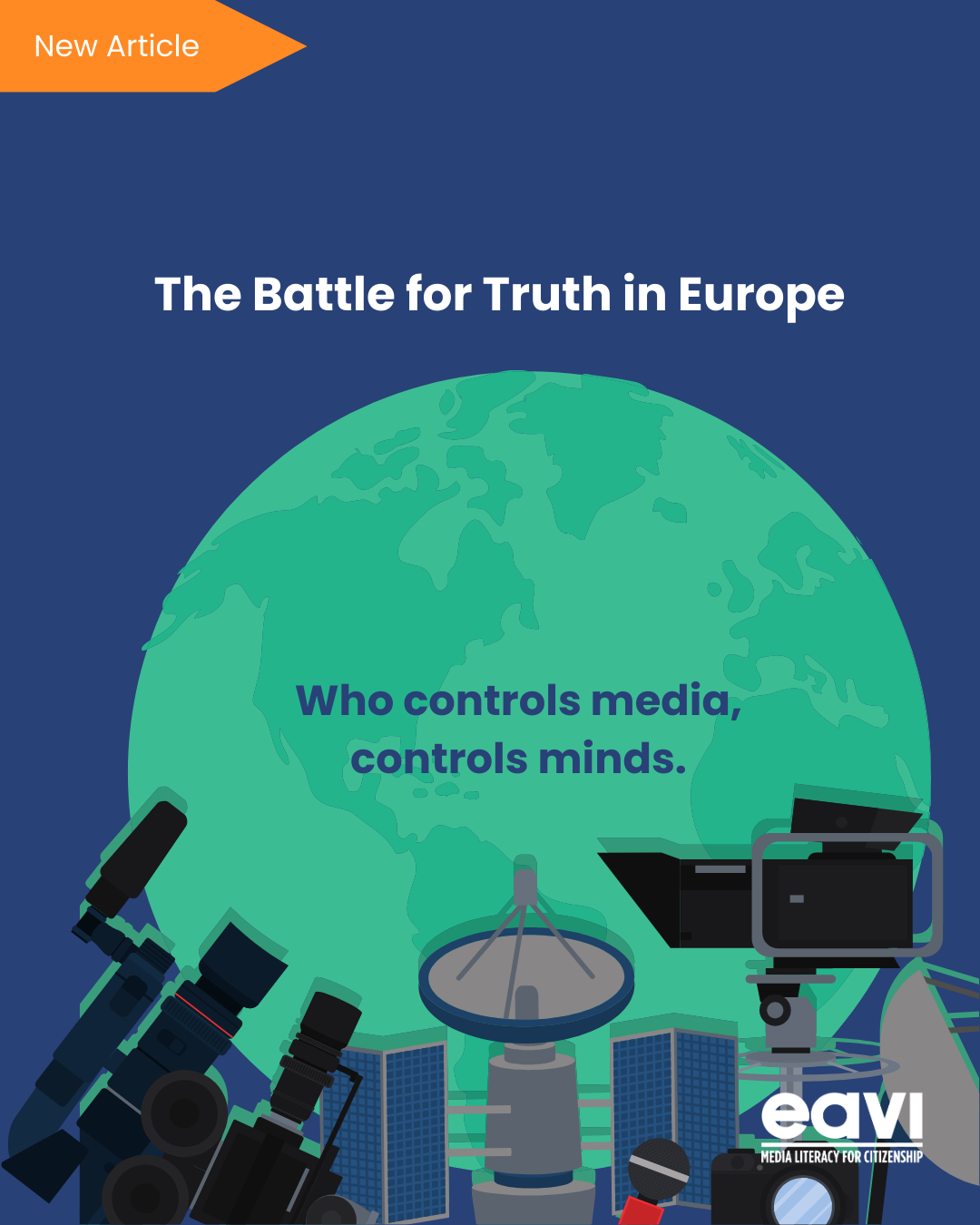
The complexity of technology, coupled with the emergence of datafication, presents new challenges for society to understand how the world works. Artificial intelligence and big data are just a few examples of the advanced technologies we have to deal with. However, both show the same trend, which is the increasingly important role of data in decision-making.
Decision-making is now also automated. This process relies on technologies such as deep learning and the availability of large, real-time data to provide insight, and new knowledge to make policies. One of the easiest examples of the datafication process in everyday life is targeted advertising and recommendation systems on social media. Therefore, the process of datafication is becoming more inevitable.
According to Mejias & Couldry, datafication is understood as a trend known as the digital quantification of human life, involving the measurement and analysis of personal information in digital technology, typically for economic value. John Cinnamon also noted that datafication has been at the centre of international development which marks an important milestone for understanding how the process is embedded into society and its future impact.
This shows that datafication has a huge influence on how we shape aspects of our economic and social lives. We are also now in the era of a data-driven society, where all decisions are also driven by data and algorithms. This process has been applied in various sectors, such as health care, social welfare, and education. However, this process can perpetuate bias, discrimination and inequality.
Datafication: Opportunities and Challenges
While the opportunities of the datafication process help to find new insights, people also need to understand its challenges. Datafication can lead to biased data collection where only certain groups or perspectives are represented. This can lead to incomplete and even incorrect representations of reality. One example is the misrepresentation of indigenous groups, black people, and women.
Bias occurs not only in the process of data collection and analysis but also in how algorithms are trained to analyse the data. As we know today, deep learning-based algorithms are trained to program themselves based on available data. Algorithms that learn and train with biased data will reproduce and perpetuate the existing bias. Multiple biases in each process will cause multidimensional problems that will continually perpetuate discrimination.
The process of datafication has the potential to further exacerbate societal inequalities by perpetuating the discrimination that already exists. This can be witnessed when data analysis is employed to specifically target advertisements. As a result, individuals from historically marginalized groups, who have been systematically excluded from certain opportunities due to societal discrimination, may also face exclusion from the advertisements. Moreover, it also can lead to misrepresentation which can cause harmful stereotypes.
Therefore, in the era of a data-driven society, it is crucial for citizens to not only access information but also understand and be critical of technology. Citizens also need to understand how technology treats them and how it impacts them.
This is How Technology Treats Me: The Importance of Data Literacy
According to Luci Pangrazio and Neil Selwyn (2019) data literacy is about the way “individuals might better engage with and make use of the ‘personal data’ generated by their own digital practices”. Without denying Facebook’s dirty work of selling users’ personal data for campaign purposes, the Cambridge Analytica case is a sign for us to pay attention to citizens’ data literacy skills.
The citizens’ lack of knowledge in data literacy exposes them to various risks and damages, including personal, social, physical, and financial consequences. Moreover, it also constrains their capacity to actively engage as informed citizens in a society that heavily relies on data.
As explained earlier, datafication is closely related to economic value, which means we also need to understand the digital economy as one of the cornerstones of literacy. Understanding the digital economy, which includes how the algorithm works and the funding behind social media platforms, holds significant importance when it comes to data literacies.
Data literacy skills also require the ability to understand, use, and generate data in a deliberate and intelligent way in order to function effectively in our society. A constant and rapid creation of new data is going place via numerous applications. Let’s take a look at how our smartwatches track our physical activity, how healthcare providers document our health data and our ongoing participation in sharing and supporting content on social media platforms.
These data are collected, stored, analyzed, and repurposed for a variety of purposes. As a result, it is critical for individuals to be able to grasp and apply data in order to participate fully and safely in our society.
Furthermore, seeing data literacy is a multi-faceted concept, Seymoens et. al (2020) offer a Data Literacy Competency Model that focuses on specific competencies such as using and understanding data. The ability to use data includes knowledge, skills and attitudes to use data actively and creatively. The first aspect divides this competency into four aspects, namely; interpret, navigate, collect, and present. Meanwhile, understanding data is the knowledge, skills and attitudes to assess data actively and creatively. This competency includes the ability to observe, analyze, evaluate and reflect.
This model gives people the ability to understand technology and how their interactions with technology occur on a daily basis. This can help them to mitigate potential risks that may occur in the future due to datafication. Today, we should also know how data treats us and how it impacts us. In conclusion, data literacy has an important role to play in empowering communities.

The complexity of technology, coupled with the emergence of datafication, presents new challenges for society to understand how the world works. Artificial intelligence and big data are just a few examples of the advanced technologies we have to deal with. However, both show the same trend, which is the increasingly important role of data in decision-making.
Decision-making is now also automated. This process relies on technologies such as deep learning and the availability of large, real-time data to provide insight, and new knowledge to make policies. One of the easiest examples of the datafication process in everyday life is targeted advertising and recommendation systems on social media. Therefore, the process of datafication is becoming more inevitable.
According to Mejias & Couldry, datafication is understood as a trend known as the digital quantification of human life, involving the measurement and analysis of personal information in digital technology, typically for economic value. John Cinnamon also noted that datafication has been at the centre of international development which marks an important milestone for understanding how the process is embedded into society and its future impact.
This shows that datafication has a huge influence on how we shape aspects of our economic and social lives. We are also now in the era of a data-driven society, where all decisions are also driven by data and algorithms. This process has been applied in various sectors, such as health care, social welfare, and education. However, this process can perpetuate bias, discrimination and inequality.
Datafication: Opportunities and Challenges
While the opportunities of the datafication process help to find new insights, people also need to understand its challenges. Datafication can lead to biased data collection where only certain groups or perspectives are represented. This can lead to incomplete and even incorrect representations of reality. One example is the misrepresentation of indigenous groups, black people, and women.
Bias occurs not only in the process of data collection and analysis but also in how algorithms are trained to analyse the data. As we know today, deep learning-based algorithms are trained to program themselves based on available data. Algorithms that learn and train with biased data will reproduce and perpetuate the existing bias. Multiple biases in each process will cause multidimensional problems that will continually perpetuate discrimination.
The process of datafication has the potential to further exacerbate societal inequalities by perpetuating the discrimination that already exists. This can be witnessed when data analysis is employed to specifically target advertisements. As a result, individuals from historically marginalized groups, who have been systematically excluded from certain opportunities due to societal discrimination, may also face exclusion from the advertisements. Moreover, it also can lead to misrepresentation which can cause harmful stereotypes.
Therefore, in the era of a data-driven society, it is crucial for citizens to not only access information but also understand and be critical of technology. Citizens also need to understand how technology treats them and how it impacts them.
This is How Technology Treats Me: The Importance of Data Literacy
According to Luci Pangrazio and Neil Selwyn (2019) data literacy is about the way “individuals might better engage with and make use of the ‘personal data’ generated by their own digital practices”. Without denying Facebook’s dirty work of selling users’ personal data for campaign purposes, the Cambridge Analytica case is a sign for us to pay attention to citizens’ data literacy skills.
The citizens’ lack of knowledge in data literacy exposes them to various risks and damages, including personal, social, physical, and financial consequences. Moreover, it also constrains their capacity to actively engage as informed citizens in a society that heavily relies on data.
As explained earlier, datafication is closely related to economic value, which means we also need to understand the digital economy as one of the cornerstones of literacy. Understanding the digital economy, which includes how the algorithm works and the funding behind social media platforms, holds significant importance when it comes to data literacies.
Data literacy skills also require the ability to understand, use, and generate data in a deliberate and intelligent way in order to function effectively in our society. A constant and rapid creation of new data is going place via numerous applications. Let’s take a look at how our smartwatches track our physical activity, how healthcare providers document our health data and our ongoing participation in sharing and supporting content on social media platforms.
These data are collected, stored, analyzed, and repurposed for a variety of purposes. As a result, it is critical for individuals to be able to grasp and apply data in order to participate fully and safely in our society.
Furthermore, seeing data literacy is a multi-faceted concept, Seymoens et. al (2020) offer a Data Literacy Competency Model that focuses on specific competencies such as using and understanding data. The ability to use data includes knowledge, skills and attitudes to use data actively and creatively. The first aspect divides this competency into four aspects, namely; interpret, navigate, collect, and present. Meanwhile, understanding data is the knowledge, skills and attitudes to assess data actively and creatively. This competency includes the ability to observe, analyze, evaluate and reflect.
This model gives people the ability to understand technology and how their interactions with technology occur on a daily basis. This can help them to mitigate potential risks that may occur in the future due to datafication. Today, we should also know how data treats us and how it impacts us. In conclusion, data literacy has an important role to play in empowering communities.

The complexity of technology, coupled with the emergence of datafication, presents new challenges for society to understand how the world works. Artificial intelligence and big data are just a few examples of the advanced technologies we have to deal with. However, both show the same trend, which is the increasingly important role of data in decision-making.
Decision-making is now also automated. This process relies on technologies such as deep learning and the availability of large, real-time data to provide insight, and new knowledge to make policies. One of the easiest examples of the datafication process in everyday life is targeted advertising and recommendation systems on social media. Therefore, the process of datafication is becoming more inevitable.
According to Mejias & Couldry, datafication is understood as a trend known as the digital quantification of human life, involving the measurement and analysis of personal information in digital technology, typically for economic value. John Cinnamon also noted that datafication has been at the centre of international development which marks an important milestone for understanding how the process is embedded into society and its future impact.
This shows that datafication has a huge influence on how we shape aspects of our economic and social lives. We are also now in the era of a data-driven society, where all decisions are also driven by data and algorithms. This process has been applied in various sectors, such as health care, social welfare, and education. However, this process can perpetuate bias, discrimination and inequality.
Datafication: Opportunities and Challenges
While the opportunities of the datafication process help to find new insights, people also need to understand its challenges. Datafication can lead to biased data collection where only certain groups or perspectives are represented. This can lead to incomplete and even incorrect representations of reality. One example is the misrepresentation of indigenous groups, black people, and women.
Bias occurs not only in the process of data collection and analysis but also in how algorithms are trained to analyse the data. As we know today, deep learning-based algorithms are trained to program themselves based on available data. Algorithms that learn and train with biased data will reproduce and perpetuate the existing bias. Multiple biases in each process will cause multidimensional problems that will continually perpetuate discrimination.
The process of datafication has the potential to further exacerbate societal inequalities by perpetuating the discrimination that already exists. This can be witnessed when data analysis is employed to specifically target advertisements. As a result, individuals from historically marginalized groups, who have been systematically excluded from certain opportunities due to societal discrimination, may also face exclusion from the advertisements. Moreover, it also can lead to misrepresentation which can cause harmful stereotypes.
Therefore, in the era of a data-driven society, it is crucial for citizens to not only access information but also understand and be critical of technology. Citizens also need to understand how technology treats them and how it impacts them.
This is How Technology Treats Me: The Importance of Data Literacy
According to Luci Pangrazio and Neil Selwyn (2019) data literacy is about the way “individuals might better engage with and make use of the ‘personal data’ generated by their own digital practices”. Without denying Facebook’s dirty work of selling users’ personal data for campaign purposes, the Cambridge Analytica case is a sign for us to pay attention to citizens’ data literacy skills.
The citizens’ lack of knowledge in data literacy exposes them to various risks and damages, including personal, social, physical, and financial consequences. Moreover, it also constrains their capacity to actively engage as informed citizens in a society that heavily relies on data.
As explained earlier, datafication is closely related to economic value, which means we also need to understand the digital economy as one of the cornerstones of literacy. Understanding the digital economy, which includes how the algorithm works and the funding behind social media platforms, holds significant importance when it comes to data literacies.
Data literacy skills also require the ability to understand, use, and generate data in a deliberate and intelligent way in order to function effectively in our society. A constant and rapid creation of new data is going place via numerous applications. Let’s take a look at how our smartwatches track our physical activity, how healthcare providers document our health data and our ongoing participation in sharing and supporting content on social media platforms.
These data are collected, stored, analyzed, and repurposed for a variety of purposes. As a result, it is critical for individuals to be able to grasp and apply data in order to participate fully and safely in our society.
Furthermore, seeing data literacy is a multi-faceted concept, Seymoens et. al (2020) offer a Data Literacy Competency Model that focuses on specific competencies such as using and understanding data. The ability to use data includes knowledge, skills and attitudes to use data actively and creatively. The first aspect divides this competency into four aspects, namely; interpret, navigate, collect, and present. Meanwhile, understanding data is the knowledge, skills and attitudes to assess data actively and creatively. This competency includes the ability to observe, analyze, evaluate and reflect.
This model gives people the ability to understand technology and how their interactions with technology occur on a daily basis. This can help them to mitigate potential risks that may occur in the future due to datafication. Today, we should also know how data treats us and how it impacts us. In conclusion, data literacy has an important role to play in empowering communities.








































































































































































